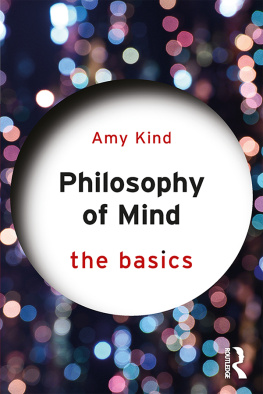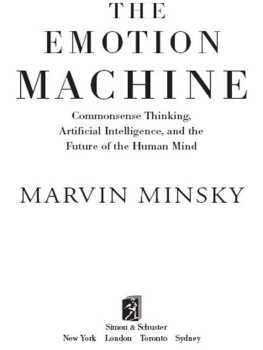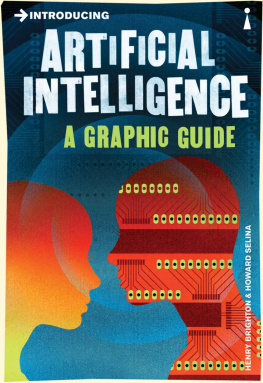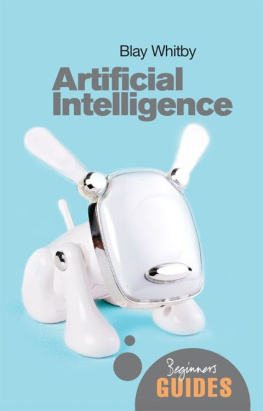DeLancey, Craig , Indiana University
Passionate Engines
What Emotions Reveal about the Mind and Artificial Intelligence
Publication date 2002 (this edition)
Print ISBN-10: 0-19-514271-3
Print ISBN-13: 978-0-19-514271-6
doi:10.1093/0195142713.001.0001
Abstract: Passionate Engines shows that our best understanding of emotion has important implications for understanding intentionality, rationality, phenomenal consciousness, artificial intelligence, and other issues. Some theories of mind, of action, and of moral psychology, and some approaches in artificial intelligence, are shown to be inconsistent with our best understanding of emotions. However, our best understanding of emotions also suggests fruitful new approaches to the challenges of these disciplines. There are three additional themes. First, the book introduces a version of a theory of some emotions called the affect program theory. This theory is defended against social constructionist and cognitivist views of emotion, and shown to be able to account for the rationality of emotions and our ability to emote for fictions. Second, the book defends the hierarchical view of mind. Part of this view is the thesis that the primary topic of the study of mind and artificial intelligence is autonomy, and not the skills typically associated with intelligence. Third, the book challenges the simplistic associations that naturalism has come to have in much contemporary philosophy of mind, arguing that science typically complicates and enriches, instead of eliminating and reducing, our view of natural phenomena.
Keywords: affect program theory,artificial intelligence,autonomy,Craig DeLancey,emotion,mind,intentionality,moral psychology,naturalism,phenomenal consciousness,philosophy of mind,rationality,social constructionism

198 Madison Avenue, New York, New York 10016
Oxford University Press is a department of the University of Oxford
It furthers the University's objective of excellence in research, scholarship,
and education by publishing worldwide in
Oxford New York
Auckland Bangkok Buenos Aires Cape Town Chennai
Dar es Salaam Delhi Hong Kong Istanbul Karachi Kolkata
Kuala Lumpur Madrid Melbourne Mexico City Mumbai Nairobi
So Paulo Shanghai Taipei Tokyo Toronto
Oxford is a registered trade mark of Oxford University Press
in the UK and in certain other countries
Copyright 2001 by Craig DeLancey
The moral rights of the authors have been asserted
Database right Oxford University Press (maker)
All rights reserved. No part of this publication may be reproduced,
stored in a retrieval system, or transmitted, in any form or by any means,
without the prior permission in writing of Oxford University Press,
or as expressly permitted by law, or under terms agreed with the appropriate
reprographics rights organization. Enquiries concerning reproduction
outside the scope of the above should be sent to the Rights Department,
Oxford University Press, at the address above
You must not circulate this book in any other binding or cover
and you must impose this same condition on any acquirer
Library of Congress Cataloging-in-Publication Data
DeLancey, Craig, 1965
Passionate engines: what emotions reveal about mind and artificial intelligence / Craig
DeLancey.
p. cm.
Includes bibliographical references.
ISBN 0-19-514271-3
1. Philosophy of mind. 2. Emotions (Philosophy) 3. Artificial intelligence. I. Title.
BD418.3.D45 2001
128'.37dc21 00-066903
end p.iv
(4) | Phenomenal consciousness. Some features of phenomenal experience are particularly pressing when we consider the basic emotions. Discovering the structure of the relation between phenomenal experience and affects will be used as a way to explore the more general issue of the relation between those experiences and the body states of the organism. |
(5) | Artificial intelligence (hereafter "AI"). Work in AI offers us an opportunity to test hypotheses, and also helps us to question our own presuppositions. Our best understanding of the affects reveals important principles useful to the theoretical underpinnings of our attempts to engineer intelligence. |
These last four issues are not necessarily related to each other except in as much as they are all core concerns of the philosophy of mind. I chose these because they are topics in the philosophy of mind about which, I believe, our understanding of the basic emotions has profound lessons to offer.
My approach to these issues is united under three themes. First, the theory that I argue for in the first section of the bookthe affect program theoryis used throughout the text. To attempt an overview of all the import of all the things that we call "emotions" would be folly. Focusing on a small number of emotions and a single theory of their nature will allow me to reveal some of the important implications of these affects, instead of constantly obscuring any such lessons under difficult issues of taxonomy.









